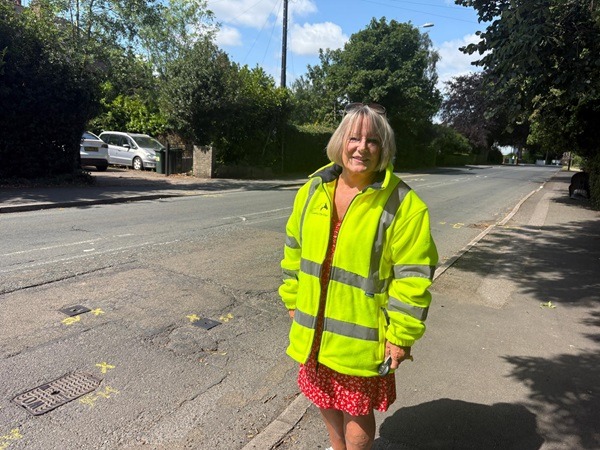
Coventry City Council is trialling the use of new materials in road surfaces.
The aim is to develop more sustainable, greener and eco-friendly road materials.
Trials will take place this summer, using two different materials in the repair of on two different roads in the city.
The project will help the UK learn how to maintain roads in a more environmentally friendly way. The trials in Coventry are part of a wider £4m set of trials across the region, funded by the Department for Transport and delivered in collaboration with Transport for West Midlands.
This investment means Coventry is playing a vital role in using innovative low-carbon materials in real-world conditions. The trials will generate robust, independently verified data on how these materials perform, their carbon footprint, and their cost implications.
The insights gained will support local authorities across the UK to access evidence-based comparisons to make informed choices as they work towards more sustainable, lower-carbon road networks.
This project builds on the Council’s use of innovative materials to resurface roads in the city, which has already included using recycled rubber pellets on a number of roads in Cheylesmore in recent years.
The resurfacing will take place over the coming weeks on:
Broad Lane – from the A45 to Farcroft Avenue
Willenhall Lane – from Langbank Avenue to Deerdale Way
The Broad Lane site will focus on testing innovative materials in the binder course (the middle layer of the road), while Willenhall Lane will trial materials in the surface course (the top layer). These materials include:
Graphene-enhanced asphalt – designed to be longer-lasting and reduce maintenance costs
Biogenic binders – made from plant-based sources, offering a lower-carbon alternative to traditional bitumen
Carbon-negative aggregates – which help to offset carbon emissions from construction
Councillor Patricia Hetherton, Cabinet Member for City Services at Coventry City Council, said: “Coventry has always been a city of innovation, and we’re proud to be leading the way once again as we trial these exciting low-carbon road materials right here on our streets. Projects like this not only help us tackle the climate crisis, but also support our commitment to creating cleaner, greener neighbourhoods for residents. By investing in this trial, we’re able to resurface two roads for the cost of one – it’s a win for the environment and a win for local taxpayers.”
These trials are being led by Transport for West Midlands. Local delivery is being supported by Coventry City Council alongside contractors Balfour Beatty, MacDonald Surfacing, and Holcim (asphalt material supplier).
A case study and summary of Coventry’s initial trial results will be published later this year, contributing to the UK’s wider efforts to reach net-zero carbon emissions and transform the way we build and maintain local roads.
For more information about the programme, visit the Live Labs 2 website and www.decarbonisingroads.co.uk.
